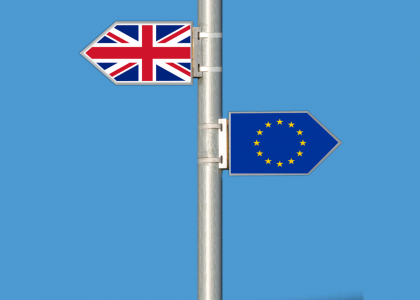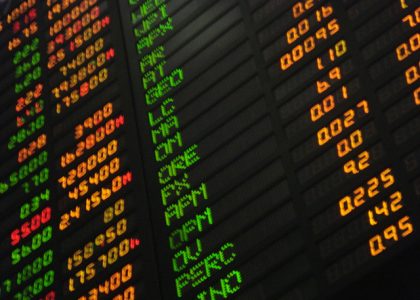The EU has labelled China as ‘simultaneously a cooperation partner, a negotiation partner, an economic competitor and a systemic rival.’ How will the EU navigate its relations with the increasingly dominant China? It faces the challenge of balancing the desire for further economic cooperation and trade with the pressure to hold China accountable for its often-problematic approach to domestic affairs and human rights.
China is now the EU’s second-biggest trading partner behind the United States and the EU is China’s biggest trading partner. The two blocks trade over €1 billion between them on an average day. Increasing and improving trade relations is of utmost importance to both parties who have put a great deal of effort into strengthening their economic ties. The EU-China Comprehensive Agreement on Investment (CAI) has been in the process of negotiation since 2013 and, although an agreement has been reached, its ratification is still pending since its suspension by the European Parliament on 20 May 2021. The CAI is focused on opening Chinese markets to European investment in manufacturing including electric vehicles, telecoms and private hospitals. The Chinese market is especially important to German car manufacturers who have a large presence in the country. This explains Angela Merkel’s position as a leading proponent of the agreement.
China’s economic growth relies on its international exports, with the share of exports in Gross Domestic Product (GDP) in China representing 17.6% in 2020. The EU is a key market for Chinese goods, and imports from the EU are also highly valuable to China. This interdependence provided the EU with some leverage during the negotiations. Within the CAI, China has solidified its commitments as part of the Paris Agreement and stepped up its cooperation with the EU on climate change. However, China’s environmental policy reforms are most likely driven by the government’s desire to grow the Chinese renewable energy and technology sectors. President Xi Jinping has coined the phrase “ecological civilisation” to describe the green, low-carbon circular economy that China is hoping to achieve.
With China’s rising position on the world stage, the question of the EU’s ability to influence the country has been brought into sharp focus. In recent years China has shown a reluctance to bow down to international pressure and EU-China relations also face criticisms from within Europe. In March 2021, the EU joined the US, UK, and Canada in placing sanctions on Chinese officials due to the severe human rights violations against the Uyghur population in the region of Xinjiang. In response, the Chinese government placed sanctions on several European individuals and entities, including five MEPs. Following these sanctions, the European Parliament passed a resolution, approved by 599 votes in favour, 30 against with 58 abstentions, freezing the ratification of the agreement on May 20. Talks on the CAI have been “justifiably frozen” while these Chinese sanctions remain. China possesses both the economic power and the political will to use legal means to retaliate against EU and US sanctions. China is also working towards the development of its ‘Silk road’ trade route – the Belt and Road Initiative – which is set to span across Eurasia and into Africa.
China’s world dominance is not an inevitable, and in May 2020 President Xi Jinping stated that “the argument that strong countries are bound to seek hegemony does not apply to China”. In a globalised world a country’s international relations and credentials are crucial. China’s track record of authoritarian practices and human rights violations against the Uyghur population, the situation in Hong Kong, the handling of the COVID-19 pandemic, and its ambiguous position on the Russian invasion of Ukraine have further damaged China’s international reputation. The PEW Research Centre reported that a majority in each of the surveyed 14-countries have an unfavourable opinion of China for example 71% in Germany. The rise of China does not make the EU’s potential normative power, notably through regulatory influence, a thing of past. The new Global Arrangement on Sustainable Steel and Aluminium between the EU and the US has been a blow to China who have made their disapproval known. China may subsequently develop its own decarbonisation strategy for the sector, to maintain its trading positions with both the EU and the US. This is an example of how the EU can sustain some of its power and influence in its future relations with China.
Another inhibitor to harmonious EU-China relations is the US. The Biden administration disapproves of what it views as the EU having gazumped them by rushing to secure the terms of the CAI without consultation with US officials. The EU did not stand as firmly against China, especially during the ‘trade war’ under President Trump and must navigate relations with the US and China under a different kind of US President. “America is back – we’re at the head of the table again,” Biden reportedly said in his first interview after his appointment as President last year; a statement that may have rattled European officials seeking autonomy on the international stage. However, as David Hutt has made the argument, the EU’s own efforts towards closer ties with China will ultimately benefit the US. According to EU claims, “it has extracted from Beijing honest promises that it will ratify international rules on forced labor”, as part of the CAI negotiations. Through cooperative agreements, the EU can support the US in its efforts to stand against China’s violations of international law.
The EU is constantly trying to balance strengthening cooperative ties with China and the pressure to stand against human rights violations. The European Parliament has consistently blocked the ratification of the CAI due to China’s treatment of its Uyghur population in Xinjiang province. EU sanctions and Chinese counter-sanctions are creating tensions between the two and an increasing powerful China is challenging the EU’s dominant economic position. Only time will tell if a mutually beneficial relationship between the two can exist in a context of systemic rivalry. Is this type of relationship a paradox or is it possible for the EU to balance contradictory pressures? No one can definitively predict China’s future behaviour domestically or within the international system, and the EU will indeed adapt its positions accordingly. Yet, it must develop a coherent medium to long term strategy that best navigates a changing geo-political context within which EU-China trading relations are embedded.
Ella Carman is a second year History and Politics student with particular interest in how modern history relates to the future of international politics.





